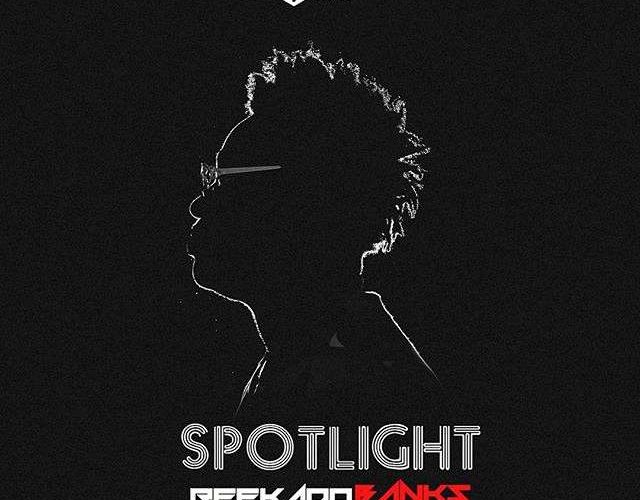Reekado Banks’ elder brother entered Reeky into the Mavin talent search without the singer’s consent. Thank God. If he hadn’t, I don’t know if any of this “blowing up” business would have happened the way that it did.
Reekado Banks might have still been known by the undistinguished stage name Spicy, Spotlight his debut album might have never seen the light of day and Lil Kesh would have certainly been the proud owner of a brand new Hyundai SUV instead.
Reeky’s unlikely come-up story is part of the singer’s allure, it’s part of the reason why the retrospective “Oluwa Ni” was so special in the first place. He changed the first verse of the original record, added Sarkodie to it and placed the new version at the tail end of Spotlight. With the way the singer infuses his success story into records like these, there’s a feeling of inclusiveness, he carries you along. He and Falz treat their newfound fame with haught and humor on “Biggy Man”, as Falz returns the favour the Mavin artiste did for him on “Celebrity Girlfriend” with a crushing guest verse. On the slow tempoed “Turn the Lights On” he takes a more motivational approach, using his own recent success as an example of what could happen to anyone if they put their mind to it. The rawness of the singer’s voice and the urgency of his delivery mixes poorly with a mellow vibe, so with the exception of “Katapot”, Reeky cleverly avoids these kind of slow records for the rest of the project.
The singer switches from inspirational to aspirational on “Dangote”, a song that uses Africa’s richest man as a human touchstone for everything successful and adopts a call-and-response mechanism to pray similar levels of success into his listener’s lives. But success is incredibly hard to come by in these times, even for Aliko Dangote who, in recent months, has lost the kind of money that would make a mere mortal like me suicidal, instantly. There’s an obvious economic argument about why things have gone so wrong in so short a time but there’s also the distraction of a political one. Reeky, rather refreshingly, isn’t scared to have either conversation. He channels his inner Felactivist on the Afrobeat-inspired “Gbagbe” and “Change”. The latter is a flip of President Buhari’s famous campaign slogan and perfectly summarizes the presidency’s new addendum “Change Begins With You” to a beat. Songs like these showcase just how well-rounded of an individual and artiste Reekado truly is.
A well-rounded artiste that appreciates a well-rounded woman too and spends a lot of time in the studio trying to figure out ways to get her to move on the dance floor. The Patoranking-assisted “Killa Whyna” attacks the waistline, “Koloba” aims a little lower, while – with the help of TZ’s Vanessa Mdee – “Move” greedily goes for the entire body. “Move” sounds like a B-side version of Vanessa’s own “Never Let You Go”. If I’m honest, sometimes it’s not hard to distill where Reeky gets the inspiration for some of his records from, which ultimately makes you feel like he’s still searching for his own sound in a heap of indigenous Yoruba music, soca, dancehall, US pop, Afropop, Afrobeat and high-life music. Even though the entire project was handled exclusively by Mavin’s in-house producers, it’s hard to have a cohesive project with these many styles of music dragging the listener in different directions every few minutes
Besides the producers – Don Jazzy, Altims and Baby Fresh – D’Prince is the only Mavin to work on Spotlight (on “All Your Love”). The man can now boast of being a young veteran, having seen it all from Mo Hits to Mavin 1.0 and now Mavin 2.0. It’s been a couple of years since Reekado, Korede and Di’ja announced their presence in the game on “Dorobucci” but it’s great to see Mavin 2.0 finally taking off. At 21 tracks long, it is a lengthy first step but Reekado Banks had a lot to say about his short time in the Spotlight and just enough musical pep in his step to make you want to listen to it again and again.


